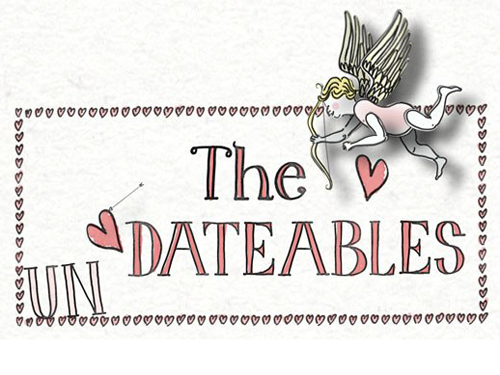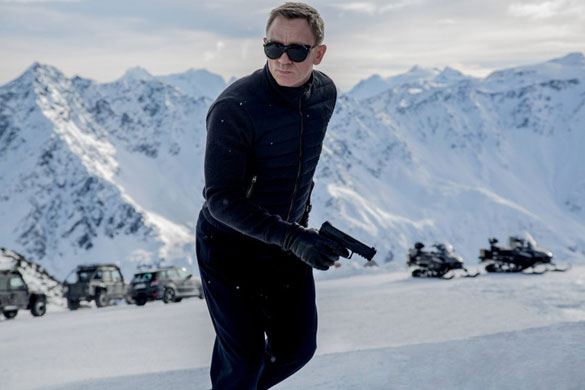The similarities between ‘The Undateables’ and other reality shows popular at the minute is its subject of a group of people attempting to navigate the dating scene and find love, and this is where it begins and ends. Unlike many others, it is a show that follows adults with disabilities or learn- ing difficulties on dates. The show was nominated for a BAFTA Television Award last year, and its fourth series broadcasted last month. The show has been met with critical acclaim, hailing it as “balanced and sensitive” (Michael Pilgrim – The Telegraph) and “sensible, sensitive, and kind” (Sam Wollaston – The Guardian). I absolutely love the show. Its not like most voyeuristic reality rubbish on our TV screens which tend to have as much depth as a puddle in the desert. Its endearing characters, and the humbling way we see them deal with their struggles, gives coverage to a group of society that is so often ignored and forgotten. There is just one problem: the name.
I was hostile to even watch the pro- gramme at first because of what it is called. The title and the show itself seem to at odds with each other: it’s a dating show for ‘undateables’, which when I did watch it, realised could not be farther from the truth. ‘The Undateables’ insinuates that the people we will be watching are impossible in love, synonymous to undesirable, but at its core the show is about disability. Placing the name in its context, it is presenting that those with disabilities are undesirable, a stigma perhaps faced every day. We meet all different kinds of people, from many different walks of life, with an eclectic mix of personalities, but you soon see past their common thread of disability. They are charming, inspiring characters, certainly not ‘undateable.’ The show itself is brilliant in what it portrays. Watching these people with different disabilities grow in confidence, express themselves, and be given a voice is something that should get much more scope than it does. It is simultaneously great entertainment, with such eclectic and unique personalities, whilst also a platform to spread awareness about the conditions some people are dealing with every day.
‘The Undateables’ as the defining description of the show does not celebrate that, in fact it enforces a subtle degradation by collectivising such a group that plays up to our prejudices about the disabled, and this is deeply concerning. Instead of enforcing empathy, it de- taches people from normal life and the rest of the population. It could bse a strategic move, the producers playing on our own assumed perception of the disabled community, but as Jim Shelley has pointed out that “The way it navigates the perilous path between being appearing to be unacceptable, offensive, and then wholly admirable makes it one of the few shows you can change your mind about WHILE you’re watching,” a sentiment that many viewer’s of the show, including myself, echo. The show is so much deeper than its shallow name; you get to understand who the show’s participants are be- neath the derogatory and reductive la- bel ‘disabled,’ an alienating stigma that society, but also the name of the show, normalises.
All it needs is a change of marketing. Rather than calling them ‘Undatea- ble’ and thus reinforcing the prejudices placed on these individuals for some- thing that they cannot combat, call it something that doesn’t demean the courage that they have to find romance. Instead call it something based in fact, such as ‘Disabled and looking for love’, or ‘Dating with Disabilities and Difficulties’, names that are much more accurate. Fundamentally its producers are do- ing themselves no favours by calling the show something that completely contradicts what it portrays: showing that those with disabilities are not different from anyone else whilst watching them seize an opportunity for happiness. We live in a world now where such dogmas no longer have a place, and such perceptions are regressive to where culture is today. Playing into such assumptions hinders progression towards a much more celebratory, accepting future; one where being different is not a negative thing.
Jessica Middleton





Personally, I think you’re missing the point. As a disabled person, I know only too well that society in general would label me as “undatable”. And yet, as you say, the programme reveals that labelling disabled people as such is unjustified, demeaning and just plain wrong. But to me, the name of the program is a challenge. It’s saying “So, you’d call these people undateable ? Well, look again !! They’re really not any different to you when it comes down to it !! ”
In other words, it says it like it is – it calls a spade a spade. This is, after all, how society views disabled people. And it calls society out on it. It points the finger back at the viewer. And that makes society uncomfortable, which is why people want to change the name to something less offensive.
If you called it “Disabled and looking for love” you would actually be doing exactly what you are saying the programme does – labelling them as a stereotype. Just because it sounds “kind” doesn’t mean it isn’t inappropriate. Dating is a normal thing that normal people do – whether they have a disability or not. Which is the point that I think the program is trying to make.